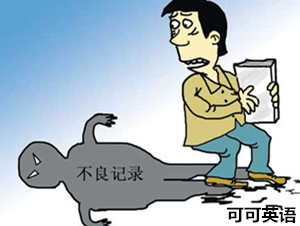
句子:
To his credit, he made a thorough Investigation.
誤譯:
因為他講信用,他進行了徹底的調査。
正譯:
應該說,他確實進行了徹底的調查。或者:應該說,是他進行了徹底的調查。
翻譯加油站:
credit是一個常用的多義詞,可以指“信用”、“信譽”、“名 譽”,“功勞”、“光榮”、“成績”、“學分”等,還可以指財務上的方”,“信用卡”就是credit card, “賒賬”是on credit,而credit titles是“(影片開頭或結尾)的導演等制作人員名單”。
含有credit的短語很多,如be a credit to somdsody的意思是 “某人的光榮”,如:
Abright child is often considered a credit tohis parents. 聰明的孩子常被認為是父母的驕傲。
do / win credit to / for...意為“為……爭光”,如:
His victory won much credit for his moterland.他的勝利為祖國贏得了巨大的榮譽。
give credit to...有三個意思:
(1)“相信/信任……”,如:
We all give credit tohis story.我們都相信他的話。
give credit for表示“相信某人(有某方面的才能)”,如;
I did not giveyou credit forsuch good skill.我沒有想到你會有這 樣好的本事。
(2)“稱贊”,如:
We should give credit toMany for the correction.我們應該贊揚瑪麗替我們改正錯誤。
(3)“把功勞歸于……”,如:
They gave credit tohim.他們把功勞歸于他。
to one's credit有兩個意思:
(1) “成為某人的光榮”,“給某人帶來榮譽”,如:
It is to the king's credit that he opposed the establishment of a military government.他反對建立軍人政府,替國王爭了光。
He has already three novels to his credit.他已經出了三本長篇小說了、
(2)值得贊揚' 如:
It is to his creditthat he did the job remarkably.他的活干得很出 色.應該受到表揚。
原文句首的to his credit也是這個意思,但不是原因狀語,與“信用”也沒有什么關系,二是對后面全句he made a thorough investigationz這一實施的評論,意思是說這件事應該是他的功勞,確有其事。其實漢語的“英愛說”可以表達這一層意思。全句可以譯為:應該說,他進行了徹底的調查。為了表示強調,也可以加上一兩個字,譯為:應該說,他確實進行了徹底的調查。或者:應該說,是他進行了徹底的調查。











